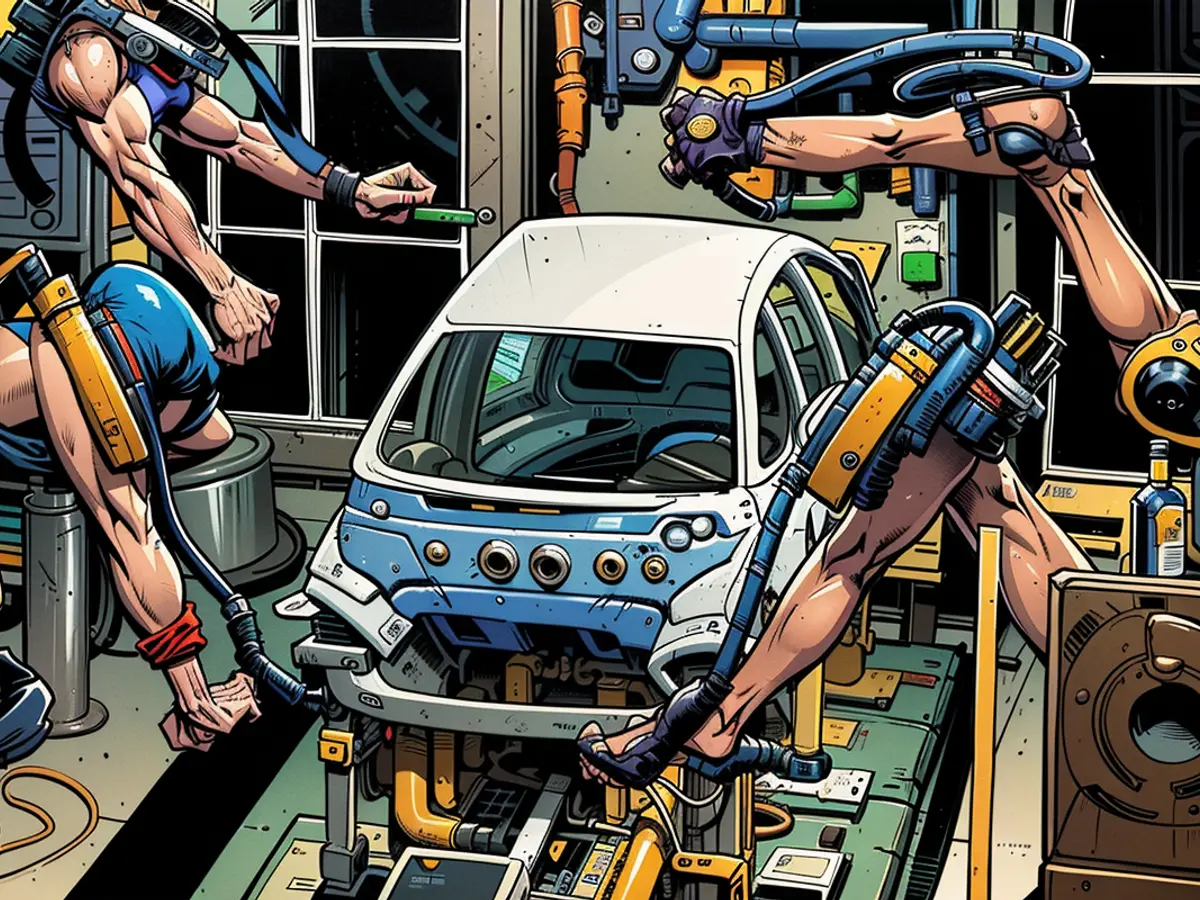The progress of the EU-China trade conflict?
The standoff between China and the EU regarding trade duties is teetering on the brink of a potentially disastrous escalation. The EU imposed tariffs on Chinese electric cars, and in retaliation, China is reconsidering duties on dairy products from the EU, including milk, cheese, and cream, as well as cars from European vehicle manufacturers:The tension between the world's second-largest economy, China, and the European Union is intensifying. The probability of an escalation spiral, which was previously anticipated, seems more plausible by the day.
The German government and the EU Commission continue to maintain hopes for a resolution. However, reports circulate that the EU has temporarily suspended its extraordinary tariffs on Chinese electric cars for the summer months. The rationale behind this action is unclear, as are the specifics of the negotiations. For now, it appears that Beijing is building a threatening scene by reviewing food tariffs.
On Wednesday, China's Ministry of Commerce declared its intention to examine additional tariffs on Euro imports. These tariffs would pertain to milk products like assorted cheeses, milk, and cream. This investigation is expected to be conclusive within twelve months, citing a grievance lodged by Chinese dairy industry associations as early as late July. Nevertheless, it's likely a retaliatory move in response to the EU's special tariffs on Chinese electric cars.
As early as June, China began an anti-dumping investigation against pig meat imports from the EU, primarily affecting Spain, the Netherlands, and Denmark. Despite the larger value of EU pig meat and dairy product exports to China, Chinese tariffs on these products would have a lesser impact on EU exports compared to China's tariffs on electric vehicles.
What's China's Game Plan?
According to expert analysis, China exported dairy products worth €1.7 billion in 2023 following €2 billion in 2022, making it the EU's second-largest dairy product supplier after New Zealand. France would take the heaviest hit from tariffs on dairy products in this sector. The import value of pig meat and its by-products from EU countries was over €3 billion in 2023, as per Chinese data. However, this total is still considerably lower than the value of Chinese electric car exports to the EU in 2023 ($13.5 billion). Consequently, tariffs on dairy products would inflict less harm on the EU than China's tariffs on electric cars.
It seems that China's eyes are also on foreign automobile manufacturers with respect to potential import tariffs. As the Ministry of Commerce revealed, they have consulted with experts, industry associations, and industry representatives on proposals to increase tariffs on imported vehicles with large engines. This situation is not foreign; in May, insiders hinted that the affected vehicles in China could be subject to tariffs as high as 25%. This would also significantly impact German car manufacturers.
20 EU Subsidy Programs Under Scrutiny
Apparently, China also has cross hairs on certain EU subsidies for possible import tariffs. The Ministry of Commerce announced its intention to scrutinize 20 subsidy programs from EU countries, primarily the EU's common agricultural policy, as well as national programs from Austria, Belgium, Croatia, the Czech Republic, Finland, Italy, Ireland, and Romania. This move could be a saving grace for China, given its industrial overcapacity and dependence on EU exports, but the extent of its impact on the EU remains unclear.
Dispute over Subsidies
The dispute started when the EU imposed tariffs on Chinese electric vehicle manufacturers, claiming that these vehicles are generally 20% cheaper than domestic alternatives due to excessive Chinese subsidies. The EU accuses China of creating unfair competitive advantages for its electric vehicles, thereby hurting European automakers' shift towards electric mobility.
Criticizing EU import tariffs vehemently, the Chinese government in Beijing deemed the EU's anti-subsidy investigation a violation of WTO rules and an underhanded act of fair competition. The Ministry of Commerce urged Brussels to abandon its misguided approach and to take concrete steps to prevent an escalation in the trade dispute.
Employees from the EU Commission posit that negotiations with Beijing could still prevent the tariffs. However, the talks have yet to yield results. On Tuesday, the EU Commission revealed the definitive tariff rates for individual manufacturer brands, such as 17% for Chinese manufacturer BYD and a maximum rate of 36.3% for SAIC. These tariffs were initially expected to apply retroactively from July 1. However, the Commission later stated that the legal requirements for retroactive tariff collection have not been met. The decision on whether or not the punitive tariffs will indeed be enforced is planned for the end of October. It remains uncertain if this is merely a formality or if the EU is paving the way for China.
Meanwhile, the German government advocates for continued dialogue with China and hopes for a mutually agreeable solution. Spokesperson Wolfgang Buechner expressed that an escalation of the trade dispute would hurt both parties. The federal government is analyzing the EU Commission's decision and calls for substantial movement and progress from the Chinese side.
The escalation of trade tensions between China and the EU, primarily triggered by tariffs on electric cars, has led China to consider retaliatory duties on dairy products from the EU. The review of food tariffs is seen as Beijing's strategic move to pressure the EU in their ongoing trade relations dispute.
In light of China's intentions to scrutinize 20 EU subsidy programs, concerns arise about potential import tariffs on these programs, particularly the EU's common agricultural policy, which could further strain trade relations.








